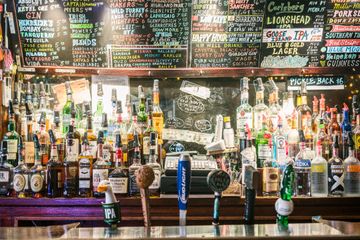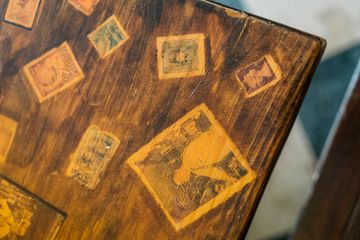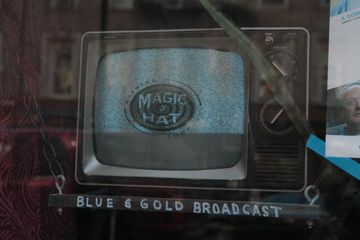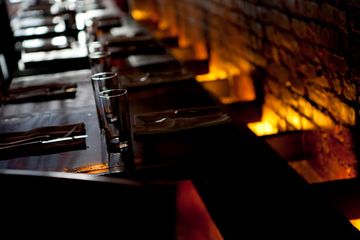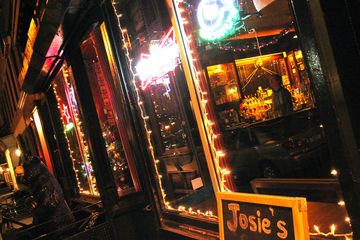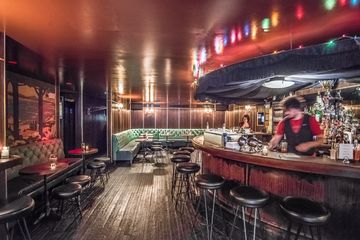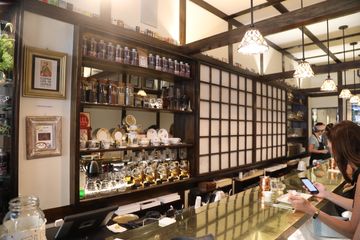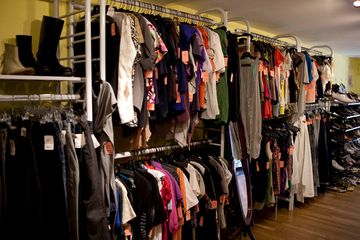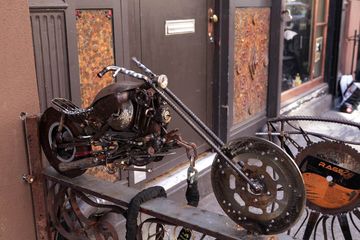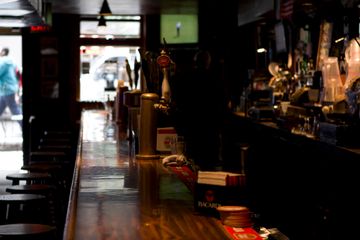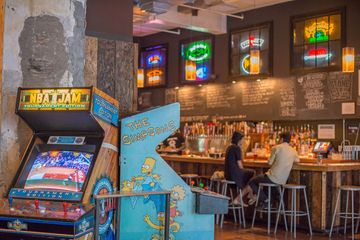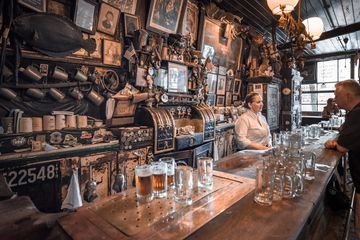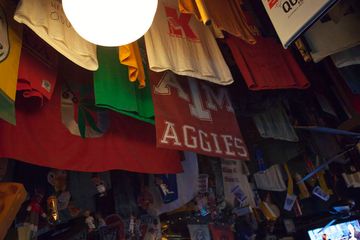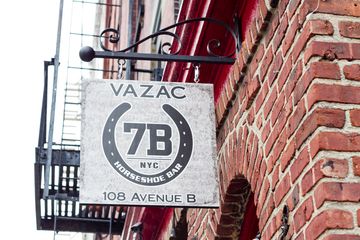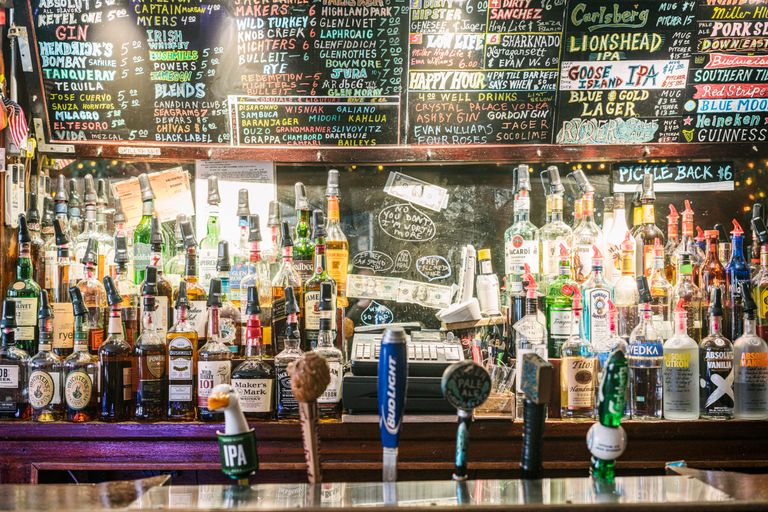
“By 1958, it was a social club. My grandfather's friends from Ukraine — everyone who had survived WWII — were spending time here.” Mike’s grandfather, Michael Roscishewsky Sr., was very strict. He had a set of rules by which he ran Blue & Gold, named for the colors of his country’s flag. He wore a three-piece suit and tie topped with an apron every day. He also would not allow in anyone wearing denim, and women could not come in unaccompanied. “When he ultimately let women come in on their own, as well as people wearing jeans, he thought it was the end of the world,” Mike shared.
Mike’s grandfather traveled through Germany in the 1940s, then to England, and eventually landed in the East Village. He owned a grocery store on 10th Street, saved up enough money, and opened Blue & Gold. He ran the bar until he retired in 1981, and his daughter, Julia, Mike’s mom, took over. On Christmas Eve of 1989, when Mike was only seventeen, the bartender took the evening off. “I covered her shift, and since then I have worked behind the bar, here and there, while running the whole place. My mom retired in full in 2002.”
Back in the day, Blue & Gold opened at 9 a.m. as they welcomed the retired firemen, police officers, and other members of the community. “We were a family. If I was five minutes late, there was always a line of retired guys waiting for me.” In the 1970s, Mike’s grandfather was one of the first to have a color TV, allowing people to come in to watch the Yankees. He also had an air conditioner, making it the place that everyone wanted to spend time. The flow of clientele was slow and steady: they would come in from opening until noon, have two or three drinks, and leave, and then the next shift would arrive to occupy the barstools between noon and 6 p.m. “They had their quotas of what they could drink and afford. Nobody drinks like that anymore.”
As the scene in the East Village began to change, Mike witnessed Blue & Gold transform from a place for old Ukrainians, to a hangout for musicians, poets, and artists, to becoming a college bar. During the week, they would greet the older clientele and on the weekends the younger folk. More recently, Mike found there is a switch where the regulars change up every five years or so. “Most come to New York with a hope and a dream and it takes them about this amount of time to realize it isn't, necessarily, going to work. However, all roads continue to lead to Blue & Gold. If you come to New York, you find your way to us.”
